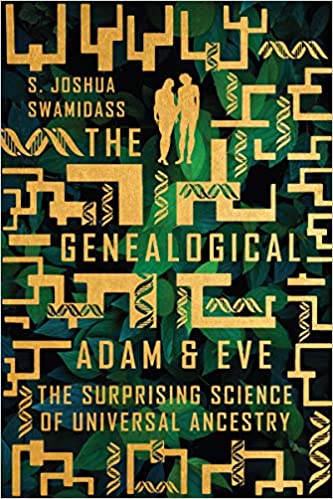Q. So why will some scholars still see value in an ancient Adam and Eve? Why do you think they take this path?
A. In view of reception history, an ancient Adam and Eve seems like a “wrong-turn.” It seems to have arisen only in response to an erroneous understanding of science. The monogenesis tradition focused on original sin and Romans 5:12-14. The doctrine is not grounded in the Image of God, but rather about humanness in the distant past. Yet, drifting from the Scriptural grounding, philosophers commonly want to understand monogenesis this way. I wonder if this move is a product of that historical wrong turn. Is it possible philosophers are reading a “philosophical” definition into Scripture, where it cannot be found? It seems so to me.
Exegetically, the ancient Adam camp has a difficult task. An ancient Adam and Eve only make sense if the original couple must sit at the headwaters of “humanness.” But the doctrine of monogenesis doctrine historically centered on Romans 5:12-14. It is about the nature of the Fall and Original Sin, not about the Image of God or humanness. So why do they think Adam and Eve must sit at the headwaters of “humanness”? This question looms large.
The justifications for an ancient Adam and Eve I have seen so far seem fragile. Several links in a chain, it seems, must be successful simultaneously to make the case. For example, Genesis 1 and 2 must be read as recapitulatory accounts, even though many scholars understand them as sequential. A sequential reading teaches that Adam and Eve are not the headwaters of “humanness,” because in Genesis 1 God creates humankind before he creates Adam and Eve in Genesis 2. But even a recapitulatory reading of Genesis 1 and 2 can be consistent with a recent Adam and Eve. In contrast, even a sequential reading does not work with an ancient Adam and Eve.
Similarly, the Image of God must be understood in a rigid substantialist way, so it is linked with “humanness.” But most exegetes reject this understanding of the image. Substantialists commonly respond that the vocational image of God implies particular abilities, and that may be true. But that misses the point because particular abilities do not imply the vocation. Even if vocation implies abilities, the reverse is not true. To me, it seems like eisegesis of a philosophical definition of human into scripture.
One scholar we both know recently argued that most of early Genesis as myth, and then adopt a hyper-literalistic reading of Genesis 2:5. Surely, it cannot be hermeneutics alone that is driving his exegesis here, can it? To be sure, this will all be hotly debated among biblical scholars and theologians. Knowing what we know now, though, is there any plausible grounding to prefer an ancient Adam and Eve? Or was that idea just another wrong turn in reception history?













